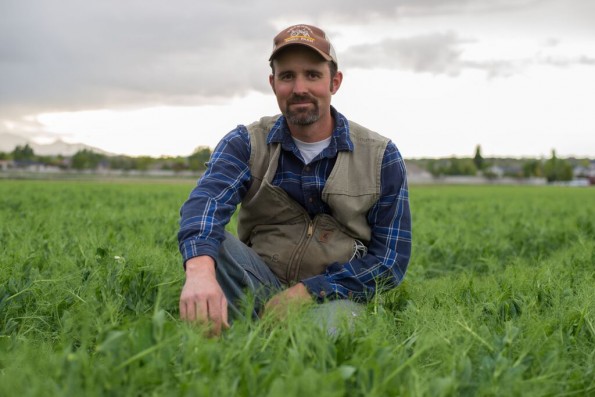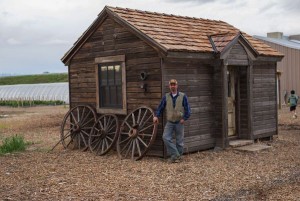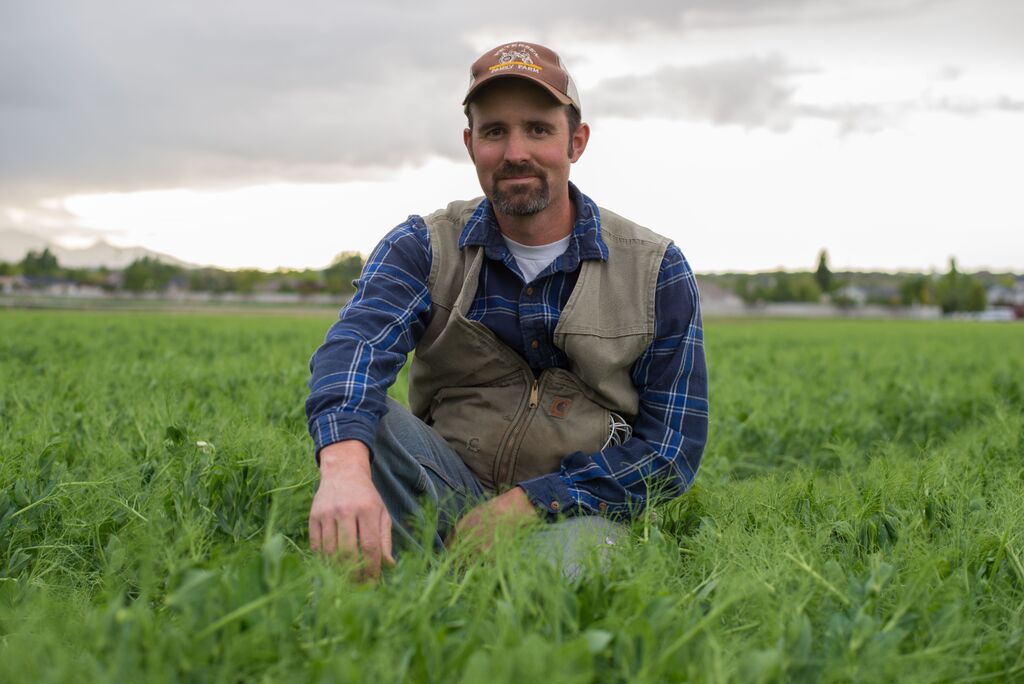
Farming in today’s world is as challenging as Utah’s weather
Once an area far away in the Salt Lake Valley distance, Riverton is now full-scale suburbia complete with a busy highway. Surrounded by many homes and neighbors, The Petersen Family Farm has had to adapt to farming in today’s world on land that has been in the family for five generations. The farm has been modified from an operation that produced mostly forage crops for animal feed to now growing almost all fruits and vegetables.
Luke Petersen grew up farming with his par ents and grandparents. His family settled in Utah from Denmark and began farming on the west side of the Jordan River in the 1940s. They dug canals to bring the water in from the river, and they have farmed in that area ever since. With a strong work ethic and a dedication to sustainable and profitable agriculture, Farmer Luke and his family continue to grow quality products despite the challenges of urban sprawl. The Petersen Family Farm is about more than just growing food and selling it. They strive to cultivate people and community.
ents and grandparents. His family settled in Utah from Denmark and began farming on the west side of the Jordan River in the 1940s. They dug canals to bring the water in from the river, and they have farmed in that area ever since. With a strong work ethic and a dedication to sustainable and profitable agriculture, Farmer Luke and his family continue to grow quality products despite the challenges of urban sprawl. The Petersen Family Farm is about more than just growing food and selling it. They strive to cultivate people and community.
“The urban sprawl in this area is both a blessing and a curse,” Luke said. “Farming already has a lot of challenges, the weather, the market and other uncontrollable factors, and now with urban sprawl it makes it difficult to find land to farm and it also makes our farm operations a bit more difficult–driving around the roads, neighbors that don’t mind looking at the farm, but don’t like mud on the road or if our animals smell. But now, being right off Bangerter Highway, it has allowed me to build more of a diversified operation.”
The Petersen Farm is currently farming 95 percent of their 85 acres of which all but 5 of those are leased to the Petersens. For a farmer, leasing land is a gamble. Luke says from year to year he is never sure what he is going to have to farm, as acres of ground continue to be sold. The availability of land and the opportunity cost of farming is an ongoing challenge. Luke had to stop raising cattle due to urban sprawl in Riverton, but the family is still in the beef business, now remotely.
“My philosophy is that agriculture is important because we need food production in our neighborhoods, but that is only part of what agriculture offers to a community,” Luke said. “If all we are valued for is the food we produce, then people are missing out on a huge part of the benefit. Simple benefits like open space and an overall feel of a community are important. There are lessons to learn that create meaningful, cherished memories. If you talk to anyone who has a farm in the family, they always talk about lessons they learned doing hard work; farming offers a primal human need, and when we get too far away from it the world becomes too abstract.”






